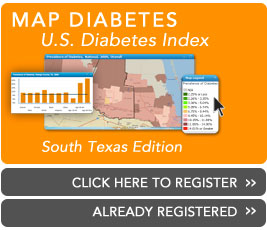Posted by Staff
Clinical Trials, Clinical Trials
Monday, June 9th, 2014
Diabetes Care: April 17, 2014
OBJECTIVE To compare the efficacy and safety of two doses of once-weekly dulaglutide, a glucagon-like peptide 1 receptor agonist, to sitagliptin in uncontrolled, metformin-treated patients with type 2 diabetes. The primary objective was to compare (for noninferiority and then superiority) dulaglutide 1.5 mg versus sitagliptin in change from baseline in glycosylated hemoglobin A1c (HbA1c) at 52 weeks.
RESEARCH DESIGN AND METHODS This multicenter, adaptive, double-blind, parallel-arm study randomized patients (N = 1,098; mean baseline age 54 years; HbA1c 8.1% [65 mmol/mol]; weight 86.4 kg; diabetes duration 7 years) to dulaglutide 1.5 mg, dulaglutide 0.75 mg, sitagliptin 100 mg, or placebo (placebo-controlled period up to 26 weeks). The treatment period lasted 104 weeks, with 52-week primary end point data presented. Read More
Posted by Diabetes South Texas Staff
Clinical Trials
Saturday, January 18th, 2014
Annals: January 7, 2014
Background: Interventions promoting weight loss can reduce the incidence of type 2 diabetes mellitus. Whether dietary changes without calorie restriction also protect from diabetes has not been evaluated.
Objective: To assess the efficacy of Mediterranean diets for the primary prevention of diabetes in the Prevención con Dieta Mediterránea trial, from October 2003 to December 2010 (median follow-up, 4.1 years).
Design: Subgroup analysis of a multicenter, randomized trial. (Current Controlled Trials: ISRCTN35739639)
Setting: Primary care centers in Spain.
Participants: Men and women without diabetes (3541 patients aged 55 to 80 years) at high cardiovascular risk.
Intervention: Participants were randomly assigned and stratified by site, sex, and age but not diabetes status to receive 1 of 3 diets: Mediterranean diet supplemented with extra-virgin olive oil (EVOO), Mediterranean diet supplemented with nuts, or a control diet (advice on a low-fat diet). No intervention to increase physical activity or lose weight was included. Read More
Posted by Diabetes South Texas Staff
Clinical Trials
Friday, January 17th, 2014
Diabetes Care: January 2014
OBJECTIVE Glucagon-like peptide 1 (GLP-1) is an incretin hormone that is released from the gastrointestinal tract. Treatment with GLP-1 analogs has proven to be of clinical use for patients with type 2 diabetes. Patients with type 1 diabetes, particularly those with residual β-cell function, may also respond to treatment, but the acute metabolic effects of GLP-1 analogs on these patients in reaction to both oral and intravenous glucose challenges are not well understood.
RESEARCH DESIGN AND METHODS Seventeen patients with type 1 diabetes, half of whom had residual insulin production, underwent two mixed-meal tolerance tests (MMTTs) and two intravenous glucose tolerance tests (IVGTTs), with and without pretreatment with exenatide. No exogenous bolus insulin was administered for the studies. Glucose excursions, insulin secretion rates (ISRs), and levels of glucagon, endogenous GLP-1, and gastric inhibitory polypeptide were measured after the meal or glucose loads. Read More



























